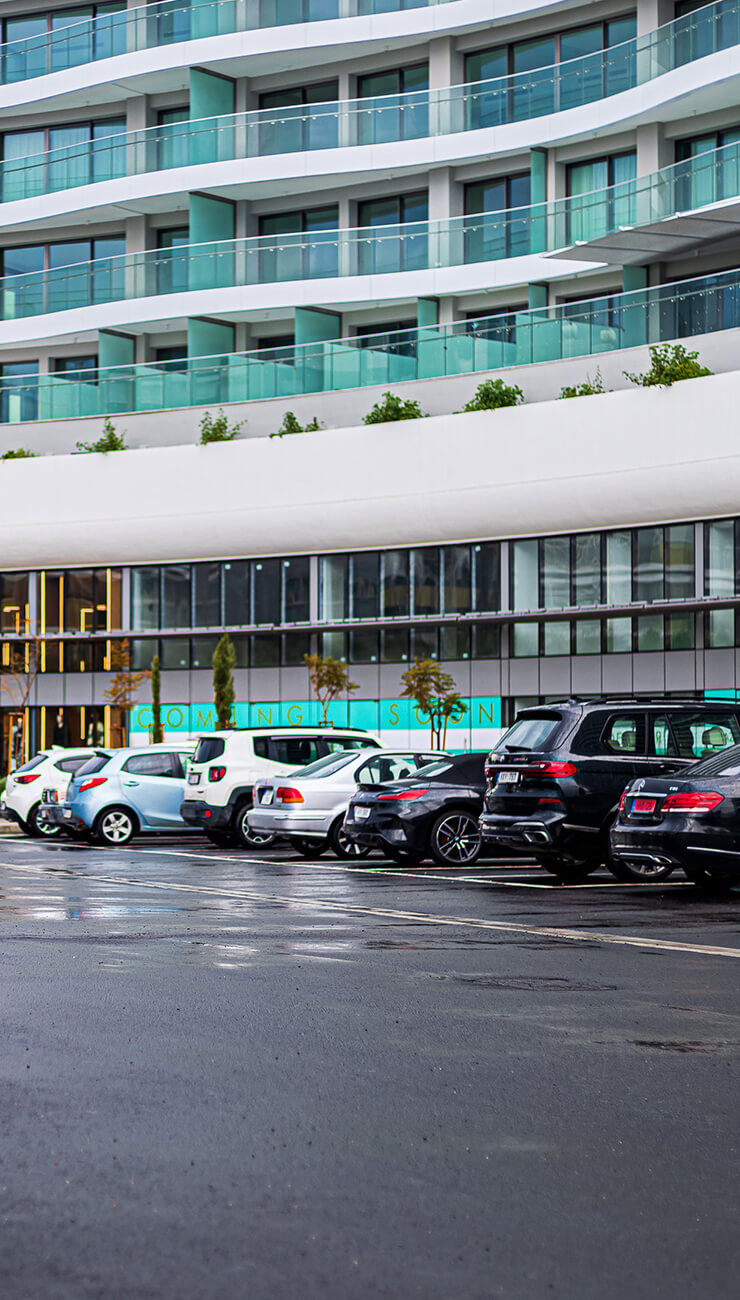Parking is a nuisance for most drivers in big Cities. People get so busy with their daily tasks that obviously scoring a parking space closest to their destination is a must, but sometimes we take our abilities and freedoms for granted. Being able to park 50 or 100 meters away from your building entrance, shop or restaurant and having to walk that insignificant distance is hardly a bother for a healthy and fit person. Now, it is quite a different story for people with disabilities, the elderly or pregnant women for that matter. Some would argue that no priority should be given to the expecting ladies, while others argue otherwise, regardless designated parking spaces are to be used only by the people they are assigned for, however should there be a wider pool of individuals given priorities to?
Funnily enough this is a hot topic for most women when pregnant. At least I have come across it several times. Now, legally in order to be able to use designated parking spaces, one must apply for a placard from their municipality or council. For disabled parking spaces which are the most common spaces available are strictly for a person with a lifelong or temporary disability. Pregnant women are not classified as prioritized individuals when it comes to parking spaces in most countries, unless there are specific difficulties the woman is experiencing, in which case she would need to pass through a medical council to confirm her physical state is causing a disability. In most developed countries there are stork or expectant mother parking spaces, which puts the discussion to rest, however, in a society where we do not have such bays, it is interesting to ask – what is the alternative?
I do not mean to compare a condition that is chosen with a lifelong handicapped individual. Nevertheless, I want to shed light on a subject many would shy away from because of the politically incorrect connotations it may carry.
Having started this discussion at a dinner party, I got quite a bit of expected backlash, granted pregnancy is not a disability. Some even said the idea that pregnancy is a form of disability will backfire from both the feminist community and of course from the disabled community.



Of course, one cannot presume to imagine what difficulties a lifelong disability presents, furthermore I am 100% with the notion that a pregnant person should not be allowed to take a parking space belonging to someone who is paralyzed or otherwise handicapped. However, there is a term in Europe called temporary disability which in some cases is a lighter condition than that of a female in her third trimester during a difficult pregnancy, and they are granted a placard for whatever duration the medical council deems necessary. Additionally, earning the fury over such a politically incorrect topic seemed plausible if the discussion at hand was relevant to the athletic woman with no complications during the gestation period, but we forget the large percentage of women who go through countless serious medical conditions which often remain after childbirth. Not to mention the post-natal period which often includes gruesome consequences which also prevent the woman from moving easily and freely.
It goes without question, that if one is to use designated areas for parking, they must have the permission to do so, which is where the placard comes in. I have found that it is possible to apply for the permission from your local council or municipality, however there is the question of awareness. How can one apply for something without being aware of the possibility? Perhaps this is not a possibility at all, who said it will be processed and be approved? There is a perfectly good chance the application will be rejected due to the circumstances being of choice. In my personal opinion government municipalities and councils should offer the availability of the placards – hospitals and medical professionals should notify their patients of such applications, as it is unlikely it would cross a woman’s mind to consider it without being advised to. In order to apply for such permission, the woman must first see a doctor who will conclude that the condition she particularly is experiencing is causing difficulty in movement, thereby providing her with the necessary paperwork to apply for the placard that allows her to park in disabled parking spaces. And the difficulty in movement needs to disable the woman from moving around easily, which in fact in some extreme cases happens to the pregnant ladies quite often. For example, placental abruption amongst other conditions like preeclampsia are potentially life threatening for both the fetus and the expecting mother and can be present for the entire duration of the pregnancy.
The disabled placard aside, it is understandable that this is a peculiar subject which will require many hours of debating before coming to a consensus, and admittedly the only valid reason to take a disabled persons parking bay is if the condition the woman is experiencing is in fact extreme and potentially threatening to herself and unborn baby. But why aren’t women offered family bays, or stork parking everywhere in Europe? The UK offers family parking bays designated specifically for men and women alike with children and of course expecting mothers, as well as many other countries outside the EU. In China and South Korea there are spaces called women’s parking bays, which are situated closer to building entrances and other destinations the parking lot is for. Yes, this has caused grievance to both men and women implying that women were given unfair advantages, or on the contrary that women were bad drivers, I believe it was most likely done with the intent to ease the lives of pregnant women and women with children and strollers, hence making it a family parking space. Women’s parking bays exist in Europe, but they are mainly in private car parks. I sympathize with the objections from men in China and South Korea because the designated spaces should not be based on gender, but on the social position of the individual, whether he is a father or if she is an expecting mother. Priorities should be given to people with larger families.
I have often heard ridiculous statements such as “why should a priority be given to a pregnant person, they chose this”, I may have even stupidly made this statement myself in my teenage years. The answer is in the question. The problem with society is the utter separation. Nobody wants to take responsibility for anyone else, nobody has the desire to understand and help their peer, on the contrary, it is a constant rivalry. The problem with society today is: if 20 years ago seeing an old lady or a pregnant woman, the onlooker gave way, then today we live in a society that complains and criticizes why they should give up their own comforts for someone else. Perhaps the parallel is extreme and not always applicable, but this is a result of a selfish society driven by consumerism. By not caring about quality people lose theirs.




















